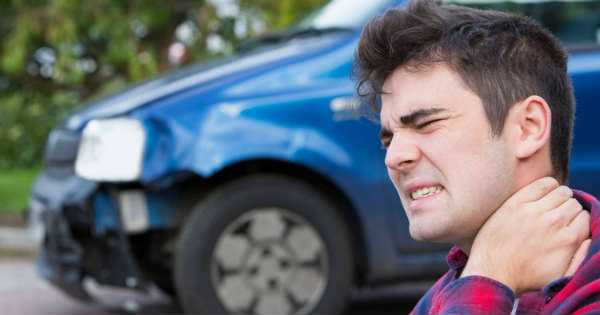With car crashes, two of the most common body parts that endure injury are the back and neck. If that happens to you, then hopefully, the damage is not very serious. If your car hits another or if they hit you at high speed, that makes a severe injury more likely. Neck and back injuries can be hazardous. Let`s go over a few of the common ones that you might deal with if you`re in a car accident.

Whiplash
Many rear-end crashes involve back and neck injuries, and often, people get whiplash that way. Whiplash:
- Occurs when the head and neck snap sharply backward and forward
- Can be extremely painful
- Might require weeks or months of recovery time
Speed plays a big part in how badly you might injure your neck. If the car hits you from behind going twenty miles per hour, the whiplash will not be anywhere near as severe as if they`re going fifty.
If you`re traveling on the highway and suddenly stop, you might get whiplash from the driver behind you slamming into you if they`re not paying attention. This sometimes happens if you come up abruptly on a traffic jam or if a deer runs across the road.
Fractured Vertebrae
You can also fracture or dislocate your vertebrae in a car crash. Your vertebrae:
- Are segmented discs that run up your spine
- Can suffer various kinds of damage, sometimes permanently
A sudden stopping and starting of your body might cause the vertebrae to break apart or get out of alignment. A violent car crash impact is a common way this sort of injury occurs.
A fractured vertebra is potentially one of the more serious back injuries you can incur. That is because the broken parts can travel into other spinal column areas.
If that happens, you might sustain partial or total paralysis. There are sometimes surgical options. Doctors can do more with spinal damage now than they could in the past.
The back is tricky, though. Even if you regain some use of your legs and walk after the surgery, you might still be in a lot of pain.
Disc Herniation
Disc herniation can also happen in car wrecks. If your upper body whips back and forth in an accident, while the lower part doesn`t move, one or more of your discs can herniate.
When this happens, part of the soft vertebra interior pushes through an exterior crack. It can pinch a nerve radiating out from the spinal column. To say that this is painful is putting it mildly.
The pinched nerve can cause arm and leg pain. You might feel numbness or tingling as well. It all depends on the herniation`s exact location.
There are sometimes surgical options, but the recovery from such an injury is long and arduous.
Nonspecific Neck and Shoulder Muscle Damage
You can also suffer nonspecific shoulder muscle and neck damage. This happens in car accidents because you might see the danger coming, and your body naturally tenses. Ironically, if people stay loose in car crashes, they often suffer less damage.
Soft tissue damage can occur even if nothing strikes your body during the accident. Your neck or shoulders might be sore for days or weeks afterward, even if the car that hit you was not going too fast.
You might treat the sore muscles with heat or ice packs. You may be able to get pain pills from a doctor, or they may want you to stick to over-the-counter pain meds. The opioid epidemic makes some doctors skittish about prescribing anything addictive.
Bone Fractures
It`s also possible in a car accident to fracture bones in your back or neck. Depending on how severe it is, you might need surgery in these situations as well.
These can be costly surgeries, and if you have healthcare with a high deductible, you might get stuck with some hefty medical bills. However, if the accident is the other driver`s fault, you can always sue for damages.
If you win a judgment against them, then you can collect that money and apply it toward your medical bills. You`ll have to pay for the surgery, but you`ll also need money to support yourself while you`re off work recovering.
Back and neck problems from car accidents are not uncommon, but they can impact your life for a long time or permanently. You might need a whole team of doctors and specialists working on you before you return to some semblance of normal.

